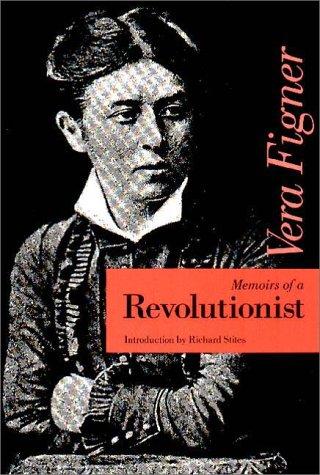314 pages
English language
Published May 27, 1991 by Northern Illinois University Press.

314 pages
English language
Published May 27, 1991 by Northern Illinois University Press.
Born into the comforts of the Russian aristocracy in 1852, Vera Figner as a child harbored the fairy-tale dream of one day becoming tsarina. By the age of thirty-two, however, Figner had become one of Russia's most vocal revolutionaries, a terrorist and member of the Executive Committee of the People's Will party, and a prisoner sentenced for life for her involvement in the assassination of Alexander II.
In this classic memoir, Figner recounts her journey from aristocrat to revolutionary, candidly relating the experiences that shaped her ideas and provoked her to political action and violence. As she reflects on her own lifelong commitment to improving the lives of ordinary Russians, she reveals much about the concept, structure, and leadership behind the radical movement in late nineteenth-century Russia. In his incisive introduction to this edition, Richard Stites discusses the importance of the memoir as a personal testimony and provides background for …
Born into the comforts of the Russian aristocracy in 1852, Vera Figner as a child harbored the fairy-tale dream of one day becoming tsarina. By the age of thirty-two, however, Figner had become one of Russia's most vocal revolutionaries, a terrorist and member of the Executive Committee of the People's Will party, and a prisoner sentenced for life for her involvement in the assassination of Alexander II.
In this classic memoir, Figner recounts her journey from aristocrat to revolutionary, candidly relating the experiences that shaped her ideas and provoked her to political action and violence. As she reflects on her own lifelong commitment to improving the lives of ordinary Russians, she reveals much about the concept, structure, and leadership behind the radical movement in late nineteenth-century Russia. In his incisive introduction to this edition, Richard Stites discusses the importance of the memoir as a personal testimony and provides background for understanding a courageous woman's role in the struggle for political change.